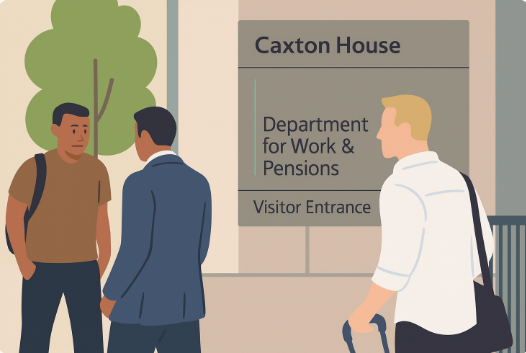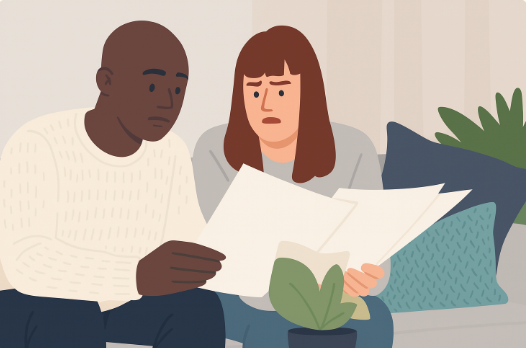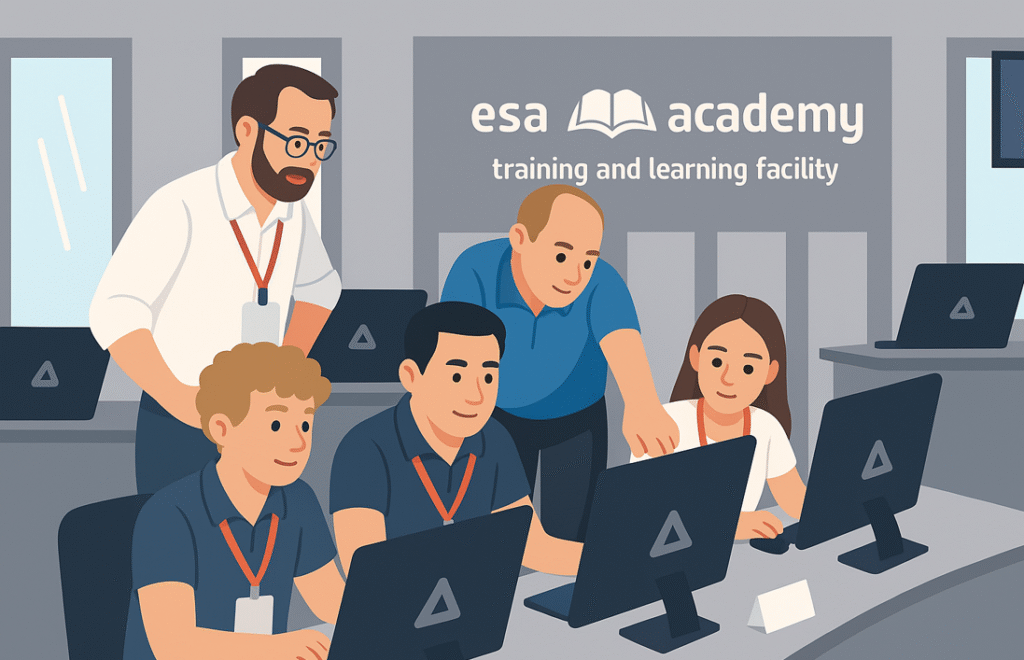If you’ve recently had a Work Capability Assessment and received a letter saying you’re being placed in the Support Group for ESA (Employment and Support Allowance) — you might be wondering, what happens if i am put in the support group for esa?
Don’t worry — you’re not alone in this. Many people find the ESA process a bit confusing, especially when it comes to understanding the difference between the groups and what being in the Support Group really involves.
We’ll cover:
- Who qualifies for the support group
- How much money you can expect
- What you are (and aren’t) required to do
- How this affects other benefits
- What happens if things change and you need to appeal?
By the end of this guide, you’ll have a clear idea of what your ESA support group status means and how to get the most out of the support available to you.
Let’s start by understanding the basics…
What is the ESA Support Group and who can join it?
What is Employment and Support Allowance (ESA)?
Employment and Support Allowance is a benefit that helps those who are unable to work due to illness or disability. There are two types: income-related ESA (largely supplanted by Universal Credit) and new-style ESA (based on National Insurance contributions).
It helps bridge the financial gap when you’re unable to earn due to health issues. You may get extra support depending on your personal circumstances, like housing needs or caring responsibilities.
What is the support group for ESA and what does it mean?
If you’re in the Support Group, that means the DWP (Department for Work and Pensions) has decided you have a serious health condition or disability that makes it too difficult for you to work or prepare for work. It’s the higher level of ESA, offering more financial support and fewer conditions.
How does the Work Capability Assessment determine support group placement?
The assessment looks at how your condition affects your daily activities. There are 17 descriptors (criteria) covering physical and mental health challenges. If you score 15 points in certain areas, or if you’re seriously ill or terminally ill, you may go straight into the Support Group.
Another route into the Support Group is through “substantial risk.” If it’s deemed that work-related activity would pose a serious risk to your health or someone else’s, you could be placed in the Support Group regardless of points.
Also, if you’re receiving treatment such as chemotherapy or recovering from surgery, and it’s clear that these impact your daily life severely, that might qualify you without needing to score high in the descriptors.
Who typically gets placed in the ESA support group?
People with:
- Terminal illnesses
- Severe mental health conditions
- Long-term physical conditions that limit mobility
- Cognitive or developmental disorders
How much ESA will I receive if I am in the support group for ESA?

What are the rates of ESA in the support group?
If you’re in the Support Group, you’ll receive:
- A basic allowance (up to £84.80 per week)
- A support component (around £39.75 per week)
Combined, that’s about £124.55 per week — but this can vary based on your circumstances.
Are there any additional premiums (enhanced disability, severe disability)?
If you get income-related ESA, you may also qualify for:
- Enhanced Disability Premium
- Severe Disability Premium
- Carer Premium
These can bump your total benefit amount significantly.
How often is ESA paid?
ESA is usually paid every two weeks straight into your bank or building society account.
You’ll receive a payslip or payment letter detailing the breakdown of what you’re getting, including any additional premiums.
It’s a good idea to keep an eye on your payments to make sure everything’s coming through as expected. If something seems off, contact the DWP right away.
ESA support group disability premium
If you receive income-related ESA and are in the Support Group, you may be entitled to the Enhanced Disability Premium or the Severe Disability Premium. These are extra payments to help with additional costs you might face.
How much savings can I have on ESA support group?
Savings of more than £6,000 might reduce the amount you get from income-related ESA, and savings of more than £16,000 are normally ineligible. New-style ESA isn’t affected by savings, but it doesn’t include housing or extra premiums.
What obligations and requirements apply to support group ESA claimants?

Do I have to attend work-related interviews or workshops?
Nope! That’s one of the key differences. If you are in the Support Group, you do not have to participate in any work-related events. However, if you want to perform any volunteer work or training, speak with your work coach about it.
Are sanctions possible if I am in the support group?
No. You can’t be sanctioned while in the Support Group. There are no mandatory activities, so nothing to be penalised for missing.
You also don’t need to worry about attending jobcentre appointments or keeping a job search log, which are typical for other benefits.
Even if you miss a DWP letter or delay returning a form, your ESA is unlikely to be affected as long as you’re in the Support Group — though it’s still wise to stay in touch with them.
Do I need to send fit notes or report health changes?
You usually don’t need to keep sending fit notes once you’re in the Support Group. But you should tell DWP if:
- Your health improves
- You go into hospital or care
- You plan to travel abroad
How long will I stay in the support group for ESA?
Is there a time limit on support group ESA?
Good news: there’s no time limit if you’re in the Support Group. As long as you meet the criteria, you can stay on it indefinitely.
Even if your condition changes slightly, you won’t be automatically removed from the group — the DWP would first need to reassess your eligibility.
Also, you can continue receiving support even if you occasionally take on permitted work, as long as it fits within the ESA guidelines and doesn’t affect your health or recovery.
How often is the ESA support group reviewed or reassessed?
You may still be reviewed from time to time. The DWP will usually let you know in advance and ask for updated medical evidence. But if your condition is lifelong or terminal, they might not reassess you again.
Sometimes reviews are scheduled automatically after one, two, or three years, depending on how your condition was assessed initially. You’ll usually be told about this review date in your original decision letter.
Also, if your doctor provides strong evidence that your condition is unlikely to improve, the DWP may decide not to schedule any future assessments.
What happens after a review or reassessment?
If your condition has improved, you might be moved to the Work-Related Activity Group or taken off ESA. But you can appeal if you disagree with their decision.
Before any changes are made, the DWP will contact you with details and give you a chance to provide further medical evidence.
In some cases, your payments may continue while the appeal is in progress, especially if you ask for it within the given timeframe and follow the proper steps.
Is ESA support group means-tested?
It depends. Income-related The ESA is means-tested, taking into account your savings and household income. The new-style ESA is not means-tested and is calculated based on your National Insurance contributions.
Contribution-based ESA support group
This is also known as new-style ESA. It’s based on your National Insurance contributions and is not affected by your savings. If you’re placed in the Support Group, there’s no time limit on how long you can receive it.
How does being in the support group affect other benefits and claim transitions?

Can I claim Universal Credit alongside ESA support group?
Yes. If you have the new-style ESA, you can also obtain Universal Credit (UC). But UC might reduce your overall income, as it takes your ESA into account.
It’s worth noting that if you’re claiming UC and ESA together, you’ll still need to complete some parts of the UC application, even if you’re in the Support Group for ESA.
Also, your Universal Credit payment may fluctuate depending on your household income, rent costs, and whether you’re receiving other benefits like PIP or Carer’s Allowance.
Will the benefit cap affect me if I’m in the support group?
No. You are free from the benefit cap while in the Support Group. This means you won’t have your benefits limited.
This exemption also means your housing costs and child benefits are protected from being reduced due to income limits.
If your circumstances change and you’re moved out of the Support Group, the benefit cap might apply again — so it’s good to stay aware of your group status and notify DWP of changes promptly.
What other support can I apply for?
You might also be eligible for:
- Personal Independence Payment (PIP)
- Housing Benefit
- Council Tax Support
- Budgeting Loans
What is the difference between ESA and ESA support groups?
| Feature | ESA (General) | ESA Support Group |
|---|---|---|
| Who it’s for | People too unwell to work or prepare for work | People with serious conditions making work prep unfeasible |
| Work-related activity | May be required | Not required |
| Payment rate | Standard allowance | Higher rate with support component |
| Medical reviews | Regular assessments | Fewer or no assessments if condition is long-term or terminal |
| Sanctions for non-compliance | Possible if conditions are not met | Not applicable |
What if I disagree with placement in the support group for ESA?

How do I challenge or appeal the decision?
If you think you should be in the Support Group and you weren’t placed there, you can:
- Ask for a Mandatory Reconsideration
- If that fails, appeal to a tribunal
What evidence helps in appeals?
- GP or specialist letters
- Occupational therapy reports
- A diary of your daily struggles
When should I expect tribunal outcomes?
It varies. Some people wait weeks; others, several months. Make sure your paperwork is complete to avoid delays.
Conclusion
Being placed in the Support Group for ESA means you get more financial help and fewer hoops to jump through. You don’t have to work or attend meetings, and you might be able to claim extra support depending on your situation. Just keep the DWP updated about major changes in your life, and you’ll stay on track.
FAQs
1. Can I work while in the Support Group for ESA?
Yes, you can do “permitted work,” but there are limits. Always report this to the DWP.
2. Do I still need to attend assessments?
Only if DWP asks you for a review. Otherwise, no.
3. Will I lose ESA if I travel abroad?
You need to inform the DWP. Depending on how long and why you’re going, it might affect your claim.
4. Can I still apply for PIP?
Absolutely! ESA and PIP are separate benefits, and you can get both if you’re eligible.
5. What happens if my health improves?
You must report it. Your claim may be reassessed, and your group may change.

I’m Adam Milne, a business writer and co-author at UKBusinessMag.co.uk. I’m passionate about simplifying complex topics—whether it’s tax, startup strategy, or digital marketing—so that entrepreneurs can take action with confidence. With years of experience in small business consultancy, I bring a practical perspective to every piece I write, helping readers turn ideas into results.




